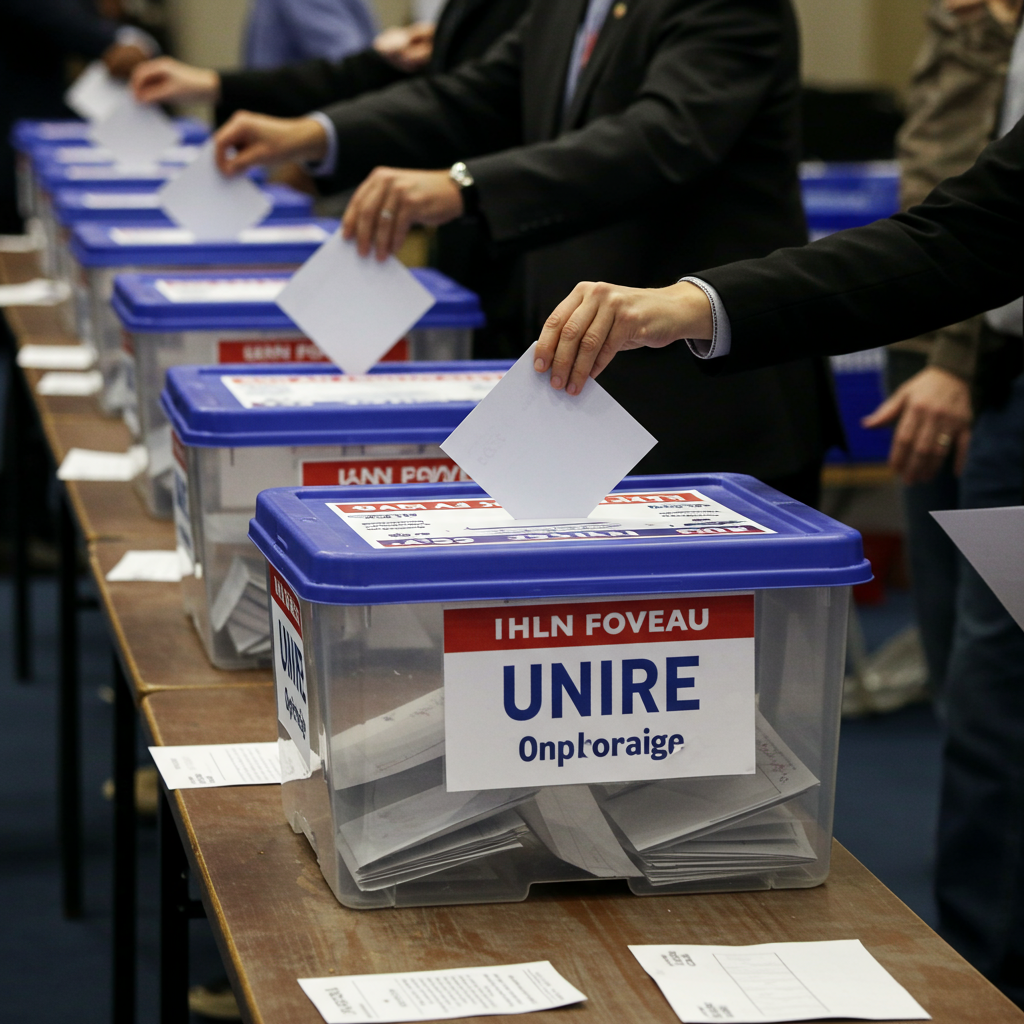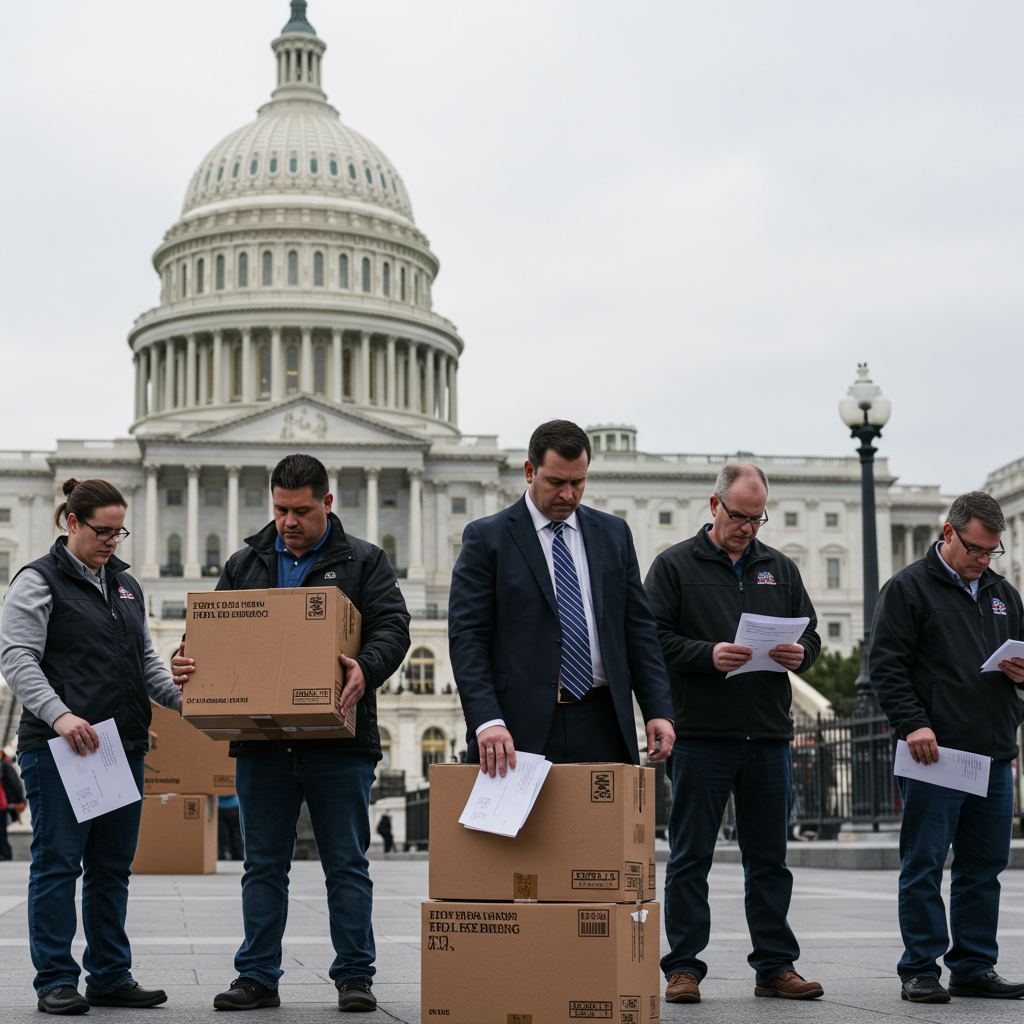A landmark agreement has sent ripples through the American higher education landscape, as Cornell University announced a $60 million settlement with the Trump administration. This pivotal deal, reached on November 7, 2025, aims to restore hundreds of millions of dollars in federal research funding that had been frozen earlier in the year. The agreement, impacting a crucial Ivy League institution, underscores the ongoing tension between federal oversight and university autonomy, particularly concerning civil rights, admissions, and diversity, equity, and inclusion (DEI) policies.
This significant development not only directly affects Cornell’s vital research endeavors in Ithaca, N.Y., but also sets a precedent for how elite U.S. universities navigate federal mandates. The resolution marks a crucial moment for Cornell, ensuring the continuation of projects critical to national interests, while simultaneously revealing the compromises institutions are willing to make to secure essential financial support.
The $60 Million Agreement: A Deep Dive into the Terms
The financial structure of the Cornell federal funding deal is multifaceted. Over three years, Cornell University has committed to two distinct payments, totaling $60 million. Firstly, $30 million will be paid directly to the U.S. federal government. This payment serves as a direct condition to conclude pending legal claims and investigations that were brought against the university.
Secondly, Cornell will invest an additional $30 million over the same three-year period into research aimed at strengthening U.S. agriculture and directly benefiting American farmers. As a land-grant institution, Cornell has a historical mission deeply tied to agricultural science and extension services. This specific investment aligns strategically with its foundational purpose, suggesting a concession that also plays to the university’s strengths and public service mandate. University President Michael I. Kotlikoff emphasized that this agreement revives a decades-long research partnership, essential for the university’s core mission and its contributions to national health, welfare, economic, and military strength.
The Genesis of the Dispute: Allegations and Financial Fallout
The road to this settlement began in April, when the Trump administration dramatically withheld an estimated $250 million in federal research funding from Cornell. The administration’s core accusation was that Cornell had committed civil rights violations. These allegations were part of a broader federal campaign targeting what the administration described as “unlawful DEI practices,” insufficient efforts to quell antisemitism on campuses, and perceived “liberal bias” in higher education.
The immediate impact of these funding cuts was severe. Universities faced dozens of “stop-work orders,” disrupting critical research projects. Many of these projects were tied to national science, climate, and agricultural initiatives. The financial strain was substantial, with internal communications from Cornell leadership highlighting budget pressures and concerns over potential staff layoffs and program cuts. The university even considered issuing approximately $1 billion in bonds to stabilize its operations amidst the uncertainty.
Beyond the Dollars: Policy Concessions and Federal Scrutiny
While the financial terms are significant, the Cornell federal funding deal includes several non-monetary concessions that carry far-reaching implications for academic autonomy and institutional policy. Despite agreeing to the settlement, Cornell explicitly denies any wrongdoing. The six-page agreement states that the deal is not an admission that the university ever violated civil rights law, a point President Kotlikoff underscored as affirming Cornell’s commitment to academic freedom and institutional independence.
However, the university did agree to provide the federal government with a comprehensive trove of anonymized admissions data. This data will be broken down by Cornell’s individual colleges and schools, race, grade point average, and performance on standardized tests. This unprecedented level of scrutiny into admissions practices signals a powerful push by the administration to influence how universities select their student bodies, potentially emphasizing merit-based criteria over other considerations.
Reshaping DEI and Campus Climate
Another critical concession involves diversity, equity, and inclusion programs. Cornell reaffirmed its commitment to train its staff on a Justice Department memo that instructs universities to disavow DEI initiatives. This move directly addresses one of the Trump administration’s key priorities: dismantling what it views as “divisive” DEI policies across college campuses. Education Secretary Linda McMahon lauded this aspect of the agreement on X, calling it “another transformative commitment from an Ivy League institution to end divisive DEI policies.”
Furthermore, Cornell agreed to conduct annual surveys to evaluate the campus climate, specifically including the climate for students with “shared Jewish ancestry.” This addresses the administration’s claims that universities were not doing enough to combat antisemitism amidst campus protests against the war in the Gaza Strip. The university will also maintain its reporting on foreign gifts and contracts. Compliance with the agreement will require quarterly certification by the university president and the deal is set to expire at the end of 2028, during which time Cornell will also formally adopt the Trump administration’s interpretation of civil rights law.
A Broader Pattern: Ivy League Under Federal Pressure
The Cornell federal funding deal is not an isolated incident but rather the latest in a series of similar settlements between the Trump administration and elite U.S. universities. This pattern suggests a concerted federal effort to reshape policies within higher education institutions across the nation. In recent months, several other Ivy League schools, despite having some of the best legal minds, chose to settle disputes rather than challenge the administration in court, highlighting the immense pressure and financial risks involved.
In July, Columbia University agreed to a hefty $200 million payment to restore $400 million in federal research grants. Columbia’s deal also involved a long list of demands, including significant changes to its admissions process, staffing, and diversity promotion efforts. Days later, Brown University reached a comparable agreement, pledging $50 million over ten years to workforce development organizations in Rhode Island. Even the University of Pennsylvania faced similar pressures, agreeing in July to ban transgender women from competing on its women’s sports teams. These cases collectively paint a picture of an administration determined to exert significant influence over university governance, from admissions and sports policies to the very interpretation of civil rights law.
The Administration’s Victory Narrative
From the Trump administration’s perspective, these agreements represent major victories. White House assistant press secretary Liz Huston hailed the Cornell deal as “a major win for American students,” asserting that “academic excellence, merit, and accountability will continue to be restored across America’s universities.” Education Secretary Linda McMahon further emphasized these reforms as a “huge win in the fight to restore excellence to American higher education and make our schools the greatest in the world.”
This narrative underscores the administration’s focus on what it perceives as restoring traditional academic values and countering what it characterizes as liberal biases and divisive ideologies within educational institutions. The ability to secure financial and policy concessions from prestigious universities serves as a powerful signal of the administration’s influence and its commitment to its higher education agenda.
Implications for Cornell and the Future of Academia
The immediate benefit for Cornell is the reinstatement of over $250 million in vital research funding, alleviating significant fiscal pressures and allowing crucial projects to resume. This stability is paramount for the university’s continued contributions to scientific advancement and national development. However, university leaders have also indicated that a “comprehensive review” of staffing and spending will continue, suggesting that structural cost adjustments may still be on the horizon.
The long-term implications of the Cornell federal funding deal, and similar settlements, are complex. They raise fundamental questions about the balance of power between federal funding bodies and academic institutions. Will universities increasingly self-censor or proactively adjust their policies to align with federal interpretations of civil rights and DEI to avoid future conflicts? How will the increased federal scrutiny of admissions data impact the diversity goals of institutions? These agreements could reshape the landscape of university-government relations, potentially leading to a new era of federal oversight and influence over academic governance. The struggle to maintain academic freedom and institutional autonomy while relying on substantial federal funding will likely remain a defining challenge for U.S. higher education in the coming years.
Frequently Asked Questions
What were the main allegations against Cornell that led to the funding dispute?
The Trump administration accused Cornell University of committing civil rights violations, which led to the withholding of an estimated $250 million in federal research funding. The administration’s broader campaign targeted what it deemed “unlawful DEI practices,” insufficient efforts by universities to quell antisemitism amidst campus protests, and alleged racial discrimination or bias in admissions practices. These allegations were part of a wider federal initiative to influence policies within elite U.S. higher education institutions.
Which other prominent U.S. universities reached similar agreements with the Trump administration?
Cornell is one of several Ivy League institutions to reach a settlement with the Trump administration over similar issues. In July, Columbia University agreed to pay $200 million to restore $400 million in federal research grants and made concessions on admissions and diversity efforts. Days later, Brown University reached a similar deal, pledging $50 million to workforce development organizations. The University of Pennsylvania also agreed to ban transgender women from women’s sports teams under administration pressure, and the University of Virginia had a non-financial agreement. These cases highlight a pattern of federal engagement with top universities.
What are the broader implications of these Ivy League settlements for academic freedom and DEI initiatives?
These settlements suggest a significant shift in federal oversight of U.S. higher education. Universities are making substantial concessions, including financial payments, sharing detailed admissions data, and agreeing to adjust or disavow certain DEI programs. This places increased pressure on academic freedom and institutional autonomy, as universities must balance their need for federal funding with their internal policies and values. It signals a potential redefinition of civil rights interpretations and a more assertive federal role in shaping campus policies related to diversity and equity.



